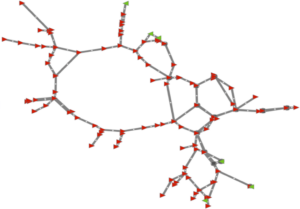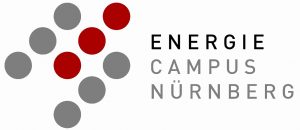Energy
Optimization of Energy Systems
We have been active in the optimization of energy systems for several years. In a number of projects we have cooperated with electrical and civil engineers, architects, economists, and other mathematicians from universities, research institutes, and industry alike. We investigate problems arising from the planning and operation of energy networks as well as from the analysis of energy markets. We model these as optimization problems, where we can tackle discrete (e.g., yes/no) decisions but also the physical and technical restrictions. In addition, we include stochastic components and multilevel structures in the models where appropriate.
Ongoing Projects
CRC/Transregio 154 – Mathematical Modelling, Simulation and Optimization using the Example of Gas Networks
Gas transport through pipeline systems has been an important research area in applied mathematics since several decades. In particular, the disciplines of mathematical modelling, simulation, and optimization have been applied to problems from gas transport. However, new developments related to the gas market demand further progress in these mathematical disciplines. The work on these challenges will also extend the range of the yet known mathematical methods. Recently, the necessary fundamental research for this is funded by the Deutsche Forschungsgemeinschaft by implementing the Collaborative Research Center/Transregio 154 “Mathematical Modelling, Simulation, and Optimization using the Example of Gas Networks” in October 2014. The research will include not only progress in each of the mentioned areas. Rather, the main goal is a tighter linkage as a key to answer theoretical as well as applied questions associated to gas transport.
Spokesperson of this CRC/Transregio is Frauke Liers (since 04/2023) and Alexander Martin (until 03/2023).
For more details visit trr54.fau.de
Robust Optimization of Gas Networks
https://gaslib.zib.de/index.html
Description
The goal of research project B06 within the CRC 154 is the development of solution methodologies that can be applied to a wide class of robust problems, such as discrete-continuous nonconvex and two-stage robust optimization models. Building upon the results of the first two phases, B06 investigates an integration of robustness and stochasticity together with discrete-continuous decisions. The goal is to develop approaches that yield reduced conservatism compared to pure robustness as well as an uncertainty protection that goes beyond stochastic guarantees. To this end, B06 researches a currently very actively studied methodology that promises these benefits, namely distributionally robust optimization that has many applications. Furthermore, learning from data is included in the methodologies to solve distributionally robust problems. Although the methods work for a large range of problems the primary motivation stems from gas network optimization. Controlling the amount of gas that flows through a network depends on the available supply and demand of gas. These are obviously not available, before they realize, so the system operator has to predict them. Since past data is available, there is some information about the distribution and stochastic optimization methods can be applied. Because the correct distribution is not known exactly, distributionally robust optimization seems a promising solution methodology, where the distribution is assumed to be uncertain.
People involved
Daniela Bernhard
Frauke Liers
Michael Stingl
Contact
For further details about this project please contact Daniela Bernhard (daniela.db.bernhard@fau.de)
Supported by
Deutsche Forschungsgemeinschaft, CSG/Transregio 154
ESM-Regio: Multisektorale gekoppelte Energiesystemmodellierung auf regionaler Ebene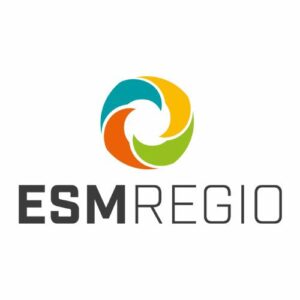
The aim of the ESM-Regio project – short for “Multisector-coupled energy system modeling at the regional level” – is to create a dynamic energy system model on a district scale that takes into account the four sectors of electricity, gas, heat, and transport as well as the necessary interface technologies. A key feature of the project is a cross-sectoral model logic. Suitable simulation methods enable a holistic analysis and optimization of system operation, taking into account the four key sectors of the energy system.
The model is being developed and tested for an exemplary region to ensure a high degree of realism. The example region is the city and parts of the surrounding district of Bayreuth. Data, expansion scenarios, and realistic questions are available for this region or can be developed by the project partners. At the same time, this region has a central structure consisting of the city and the surrounding districts as well as significant shares of trade, commerce, and services (GHD) and industry. In addition, the region is free of influences such as neighboring large cities. The component-based model structure of the project enables it to be transferred to other regions.
The ESM-Regio project, which is funded by the Federal Ministry of Economics, will run for three years. It is coordinated by the Laboratory for Computer Science 7 at Friedrich-Alexander-Universität Erlangen-Nürnberg (FAU). Other scientific partners at FAU are the Laboratory for Energy Process Engineering, the Department of Data Science, and the Laboratory for Computer Science III at the University of Würzburg as well as the Institute for High Voltage Technology, Energy System, and Plant Diagnostics at Coburg University of Applied Sciences (IHEA). Industrial partners are the Energy Agency of Northern Bavaria, Nuremberg and Kulmbach (EAN), Stadtwerke Bayreuth, and the Energy Technology Cluster of Bayern Innovativ GmbH.
Website: https://www.bayern-innovativ.de/de/seite/esm-regio
People involved
Frauke Liers
Kevin-Martin Aigner
Alexander Martin
Robert Burlacu
Contact
For further details about this project please contact Kevin-Martin Aigner (kevin-martin.aigner@fau.de)
Energie Campus Nürnberg
The structurally adjusted treatment of diverse forms of energy, their availability on different scales in time and space, and their feed-in and transportation through a holistically designed “energy grid” are among the major challenges for the power industry and power-related sciences. The Energie Campus Nürnberg (EnCN) is an interdisciplinary research center that combines scientific work from the areas engineering and natural sciences, computer sciences, socio-economic, architecture, and mathematics. Its goal is to put to the vision of a sustainable power society based on renewable energy into practice. Currently, the EnCN is divided into ten research projects that strongly interact with each other. The chair of EDOM is active in the project EnCN Simulation that acts as a link between the other EnCN projects Transport, Networks, Process, Building, and (in particular) Economy. Examples of encompassing goals are the optimal layout, planning, and coupling of networks or the development of models and methods to increase robustness against fluctuating availability of energy forms, quantities, market economies and consumption.
For more details visit encn.de
Finished Projects
Robustification of Physical Parameters in Gas Networks
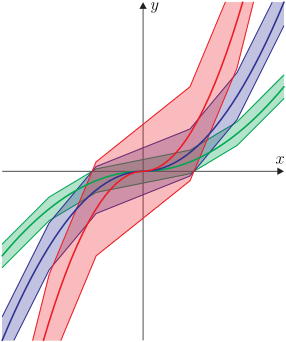
Description
The goal of research project B06 within the CRC 154 is the development of tractable robust counterparts for global optimization problems, with a focus on gas networks. The motivation stems from the fact that for many real-life problems some parameters can only be estimated roughly. A well-known example in gas network optimization is the roughness value of the pipe that influences the friction of the gas and thereby effects the pressure loss between the endpoints of the pipe. However, the roughness depends on the contamination of the pipe and can only be measured with great effort. Another example is the real gas factor which depends on the gas mixture. Since gases with different chemical composition are mixed within the network, usually the exact gas mixture is unknown, and the real gas factor has to be estimated. Moreover, different formulas are used that describe the function for determining the friction from the pipe roughness. Finally, there are methodological uncertainties from the approximation of nonlinear functions in the context of mixed-integer linear optimization problems (MIPs). Similar situations are found in a wide range of applications. Therefore, results of this research project may be used for other optimizations problems under uncertainty, e.g. for water-network optimzation. In our robust optimization setting, continuous state variables are categorized as adjustable (“wait-and-see”), whereas binary decision variables are modeled as static or “here-and-now” variables. The robustification of the mentioned problem leads to mixed-integer linear, conic quadratic or positive semidefinite optimization problems, depending on the given uncertainty set and the occurance of the uncertain data. These different modeling options are adapted for gas-network optimization. A major goal will be the development of exact methods that use positive semidefinite subproblems. Initially, only the stationary case is considered. However, an extension to straight-forward transient models is a mid-term goal.
People involved
Denis Aßmann
Frauke Liers
Michael Stingl
Contact
For further details about this project please contact Denis Aßmann (denis.assmann [at] fau.de)
Supported by
Deutsche Forschungsgemeinschaft, CRC/Transregio 154
Analysis of the German Electricity Market
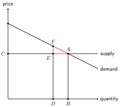
Description
People involved
Frauke Liers
Alexander Martin
Contact
For further details about this project please contact Martin Schmidt (mar.schmidt[at]fau.de).
Partners
This project is part of the Energie Campus Nürnberg. Collaborative researchers in this project are
Prof. Dr. Veronika Grimm (FAU, Chair of Economic Theory)
Prof. Dr. Gregor Zöttl (FAU, Chair of Regulation and Energy Markets)
Publications
Veronika Grimm, Alexander Martin, Martin Schmidt, Martin Weibelzahl, Gregor Zöttl: Transmission and Generation Investment in Electricity Markets: The Effects of Market Splitting and Network Fee Regimes. 2015. Preprint
Lars Schewe, Martin Schmidt: The Impact of Physics on Pricing in Energy Networks. 2015. Preprint
Veronika Grimm, Lars Schewe, Martin Schmidt, Gregor Zöttl: Peak-Load Pricing on a Network. 2015. Preprint
Veronika Grimm, Alexander Martin, Martin Weibelzahl, Gregor Zöttl: More Price Zones May Lead to Worse Locational Price Signals. 2015. In Preparation.
Optimal Control of Electrical Distribution Networks with Uncertain Solar Feed-In

“Areic modelling, simulation and optimization of solar feed-in, power flow and control of electrical distribution networks with uncertain feed” is a collaborative project of the BMBF-funding measure “Mathematics for Innovations”. The project will be funded from January 01, 2018 to Dezember 31, 2020.
Description
- Kevin-Martin Aigner
- Frauke Liers
- Alexander Martin
Contact
For further details about this project please contact Kevin-Martin Aigner (kevin-martin.aigner@fau.de).
Partners
Academic Partners
- Universität Ulm, Institut für Stochastik (Prof. Dr. Volker Schmidt, project coordinator)
- Universität Duisburg-Essen, Lehrstuhl für Energiewissenschaft (Prof. Dr. Christoph Weber)
Industrial Partners
- Deutscher Wetterdienst (Dr. Bernhard Reichert)
MINOA: Mixed-Integer Non-Linear Optimization: Algorithms and Applications
MINOA will train a new generation of scientists in the rather young but fast growing field of mixed-integer nonlinear optimisation applications and algorithms, by enhancing research-related and transferable competences and exposure to the non-academic sector. Through self-organizing training events, the young researchers take responsibility at an early stage of their career. The settings provided by the hosting institutions empower the ESRs to become independent and creative researchers, which increases their employability. Mobility and internationality is provided through secondments within our international consortium that includes institutions from 6 European countries. Furthermore, network-wide events take place regularly.
Details
Participants: Frauke Liers, Martin Schmidt, Dennis Adelhütte



